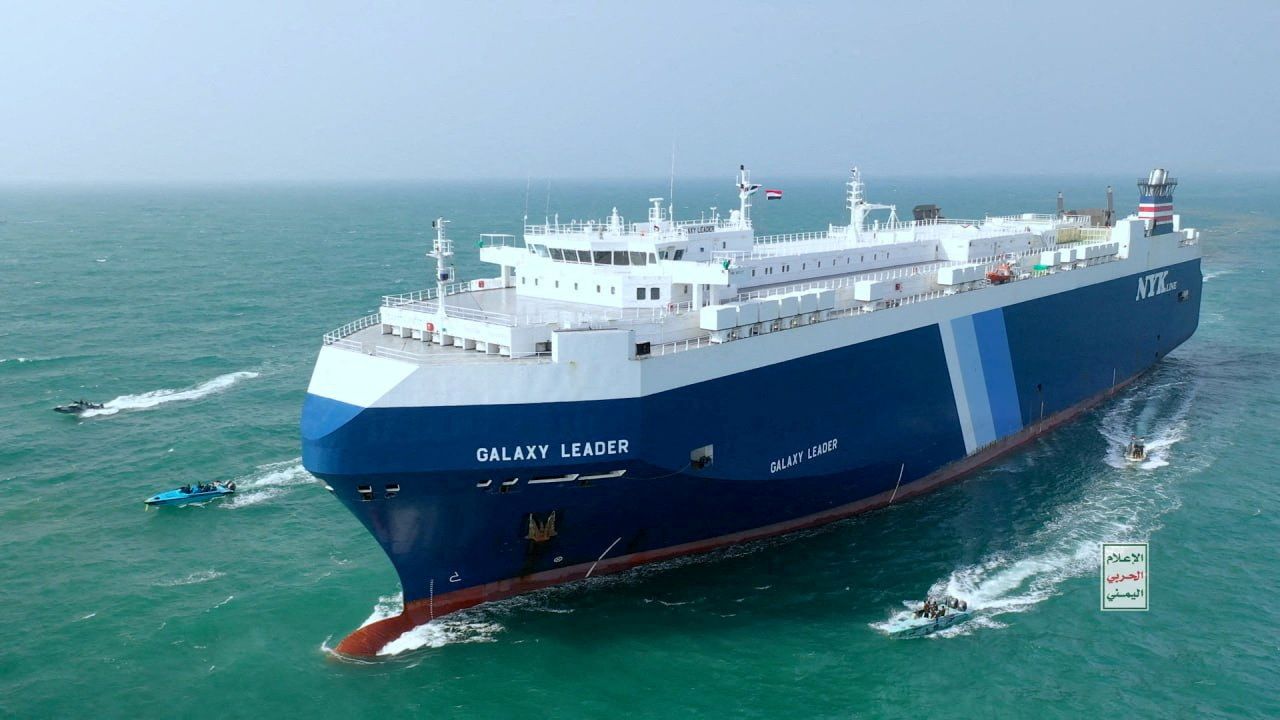Attacks on Ships and Rerouting in the Red Sea Amid Gaza War Spillover
The Red Sea connects the Mediterranean Sea to the Indian Ocean through the narrow Suez Canal. It’s about 2,000 km long.

Attacks on Ships and Rerouting in the Red Sea: One of the world’s most important trade lines, the Red Sea, is becoming more tense. This is because Israel and Hamas are still at war with each other.
US Defense Secretary Lloyd Austin said on December 19 that Houthi fighters from Yemen have attacked or taken over 12 cargo ships in the past four weeks. Big companies like AP Møller-Maersk (which has a lot of ships) and British Petroleum (an oil and gas company) have stopped using this route because of the attacks. Also on Tuesday, Prime Minister Narendra Modi wrote on X that he had talked with Benjamin Netanyahu, the prime minister of Israel, “about the ongoing Israel-Hamas conflict, including our shared concerns about the safety of maritime traffic.”
Lloyd also said that a world security effort called Operation Prosperity Guardian would begin. Near Yemen is the small strait of Bab el-Mandeb, which leads to the Red Sea. The Houthis’ spokesman, Yahya Sarea, said that the ships MSC Clara and the Norwegian-owned Swan Atlantic were attacked on Monday.
Attacks on Ships and Rerouting in the Red Sea: What does it mean that ships are being attacked in the Red Sea?
The Red Sea connects the Mediterranean Sea to the Indian Ocean through the narrow Suez Canal. It’s about 2,000 km long. Before the Suez Canal was built in 1869, ships going from Europe to Asia had to go around South Africa’s Cape of Good Hope. The Suez Canal gave them a straight path that made the trip much faster and easy.
The US Energy Information Administration says that 9.2 million barrels of oil passed through the Suez Canal every day in the first half of 2023. Mark Forgione, who is in charge of the Institute of Export & International Trade, told Bloomberg that the Suez Canal is important for about 12% of world trade, but only for 5% of it.
It is said that the Houthis have been striking Israeli-linked ships in the Red Sea. They say this is a protest against Israel’s military operation in Gaza after October 7, when the Palestinian terrorist group Hamas attacked Israel. In earlier November, Houthi rebels also took over the Galaxy Leader, a ship going to India.
What do the Houthis have to do with the war between Hamas and Israel?
The Houthis and the government of Yemen have been at odds with each other for almost ten years. The city, Sanaa, and the rest of northern Yemen are run by them. The main government is now in Aden.
They are called Zaydi Shias, which comes from the name of the Houthi group. Zayadism is a branch of Shia Islam that sees the governing leader of the state as someone from the family of the Prophet Muhammad. But it also thinks that starting wars is a good way to take power away from a master who isn’t fit to rule or who isn’t fair. They have tried to bring back Zayadism even though Sunni Salafist ideas, which are based on the hadith (sayings of the Prophet), are becoming more popular.
Report from the Carnegie Endowment for International Peace says, “It is clear that tribal and regional identities overlap, and this has been at the heart of political power struggles in Yemen for decades.” Recently, religious differences have grown more important, and religious education has become more involved in political disputes.
People think that Iran, which is mostly made up of Shia Muslims, supports the Houthis, even though Iran has rejected this. The government of Yemen is backed by the US and other Western friends, as well as its competitor in the area, Saudi Arabia, which is mostly Sunni. Because of this, the Houthis’ support for Palestine is also a sign of tensions in the area.
Check Out: The Return of Wave to Earth: Philippines Anticipates the Phenomenon’s Comeback!
Could the strikes in the Red Sea have an effect on the world economy?
Tuesday, the price of oil went up because people were worried about the problems that could happen with shipping and logistics around the world. According to a study from the Atlantic Council, the new route through Africa could make trips take two weeks longer.
A study by credit rating company S&P found that freight forwarders, who act as middlemen in the transportation business, are also raising shipping rates. It said, “A container going to the Middle East will now have to pay an extra fee for war risk.”
The disruption is not expected to have a big effect on the prices of crude oil and liquid natural gas (LNG), according to Goldman Sachs experts cited by Reuters. This is because production is not being affected by the disruption; only the routes are being changed.
Some market worries seemed to be eased by news that countries were trying to reduce the threat. As part of Operation Prosperity Guardian, which is led by the US, the Red Sea will be patrolled by both sides. The Associated Press was told by an unnamed US source that there are more military ships in the area. They won’t always accompany a certain ship, but they will cover as many as they can with an umbrella.
Austin said that Spain, the Netherlands, Norway, Bahrain, Great Britain, France, Italy, the Seychelles, and the UK had all joined the operation. AP reports that several other countries have also agreed to take part in the operation but do not want to be named.
Check Out: Jio: Know About to Jio Foundation, Jio Network, Jio Apps and Jio Fiber
